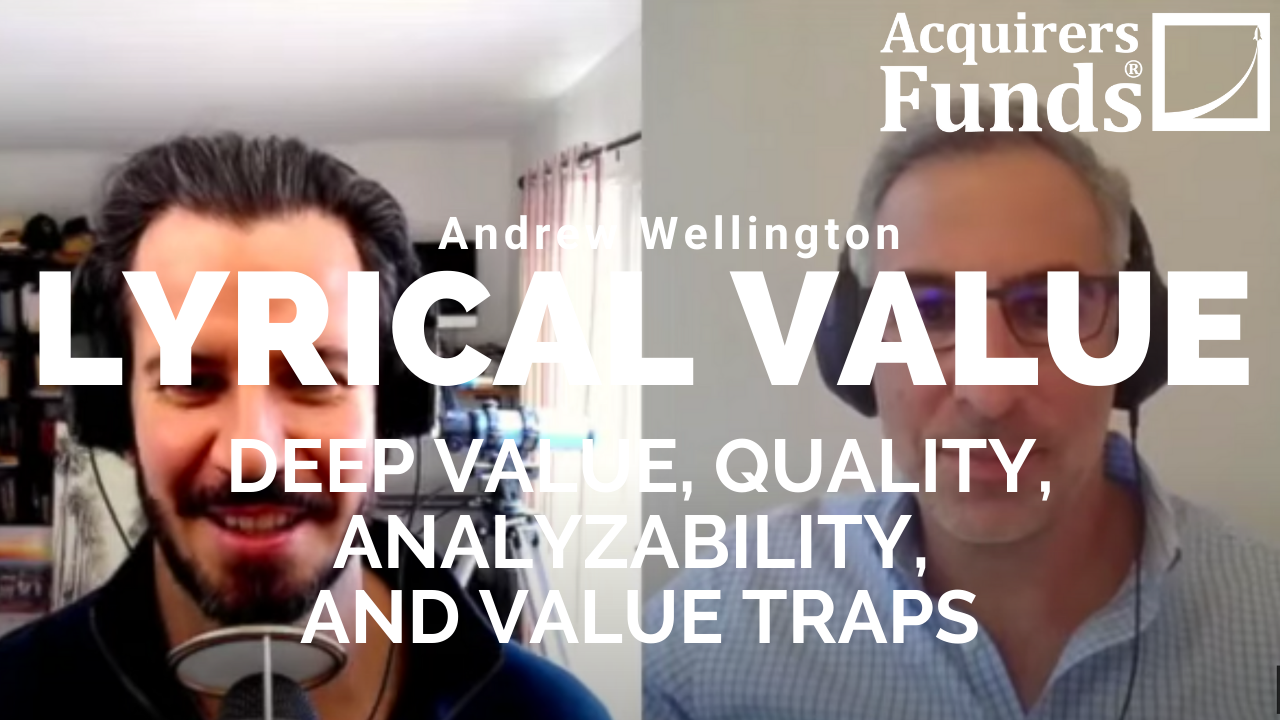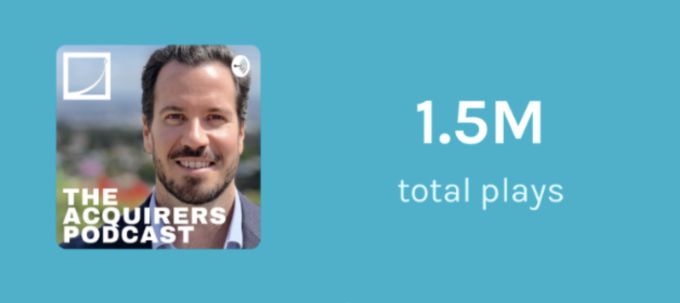During his recent interview with Tobias, Andrew Wellington, Co-Founder and Managing Partner at Lyrical Asset Management discussed Analyzability – Triaging Your Best Ideas. Here’s an excerpt from the interview:
Andrew: It’s iterative process. I like to do triage. There’s some things that look good on the screen. After a little bit of work, you can quickly dismiss them because you see something like asbestos lawsuit, the research notes. Number one on our screen for a while was Pacific Gas and Electric. Obviously, screen wasn’t taking into account that they set the state of California on fire and might be liable for that.
The screen is a very good tool, but an imperfect one, and so you do a little bit of work and some of the names immediately and just keep– in some sense, you just keep doing work until you can’t dismiss it anymore. You keep looking for a reason not to own it. At some point, you’ve turned over every rock and stone and you can’t find a good reason. That’s a little bit of a simplification, but we have a team of four people, including myself, and we all go through the screen, and we all look for ideas. We will do a little bit of work and we’ll talk about what ideas look interesting, and we’ll agree on one name. That’s our top priority. Then, we actually all independently do our homework on it.
Some of the work will share, you don’t need for people to create the same spreadsheet. We’ll divide and conquer a bit. It’s hard to describe, but it’s traditional old-fashioned research, you study up on the business, you figure out what are the things I got to worry about? You try to build a financial model and think about what are the important stuff, you got to get right to get that right.
If the model says, it’s got good future earnings, and you can buy it at a low price. Most importantly, we haven’t talked about this yet, a concept we call analyzability. I can put numbers into a spreadsheet to come up with future earnings for any business, but for lot of them, I’m not going to believe it I could build a model on Citigroup. I’m now finally old enough, wise enough to know not to believe it, because they’re just numbers in a spreadsheet you’re making up, you actually can’t forecast it. You take something else.
One of the simplest businesses we have in the portfolio is a company called Crown Holdings, and they make beer cans and soda cans, you can model that. You can get that business right. You’re not going to get it right to the penny, but take bets, which stocks earnings do you think you’re going to get right, five years from now crown holdings, or Citigroup. Just one is inherently more analyzable, it’s easier to get right. It’s simpler, it’s more transparent.
That’s I think, a key thing that separates Lyrical. A lot of people have done a lot of work to study on what works in investing. As I was talking about earlier with stuff like quality, we’ve put a lot of thought into what works in research. The thing that works in research is analyze easy businesses, and you’ll get more of them right.
There’s a certain bravado in value investing that wants to tackle the really hard one with the most complicated financials. The more complicated is the harder the task, perhaps there’s more value hidden. Also, you’re much less likely to actually get it right. If you just look a little harder, screen a little harder, what you’ll find is there’s something just as cheap, with just as much upside, that’s a whole lot easier to figure out.
We’d rather work really, really hard to find easy investments. They’re harder to find, but when you find them, it’s a lot easier. You’ve still got to do the good fundamental research and figure out how the business works, what drives it, and get those assumptions roughly right. Again, the easier a business is, the greater your chances of getting it right.
Tobias: You say you’re looking for tractability, it needs to be understandable, no tail risks, so no asbestos liabilities, or liabilities [unintelligible [00:27:53] California a lot. Then, high returns on invested capital or higher than average returns on invested capital and [crosstalk] low price.
Andrew: I would just correct. It’s not high returns invested capital, it’s about avoiding low returns on invested capital. It’s about having a floor, our absolute floors 10%. Our preference is 15. I’d rather own a cheaper company with a 16% ROE than not cheap, not that cheap company with a 60. There really isn’t that much of a difference between 60 and 16. So, it’s more about avoiding the bad than it is about seeking the great.
You can find out more about Tobias’ podcast here – The Acquirers Podcast. You can also listen to the podcast on your favorite podcast platforms here:
For all the latest news and podcasts, join our free newsletter here.
Don’t forget to check out our FREE Large Cap 1000 – Stock Screener, here at The Acquirer’s Multiple:




